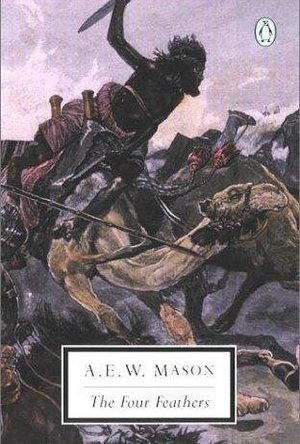Search
Search results
David McK (3721 KP) rated The Four Feathers in Books
Jan 28, 2019
'Every man would be a coward where he but brave enough' is a quote that I thought came from this novel.
Turns out I was wrong on both counts - the actual quote is 'For all men would be cowards if they durst', and was actually written by John Wilmot, the Earl of Rochester in his poem "A Satyr against Reason and Mankind" roughly 2 centuries before the publication of this novel.
It's also a line that Mason, ad the others of his generation, would have had absolutely no understanding of and would (probably) have been vehemently against, as depicted in the events of this story.
This story starts on the eve of his regiment sailing off to fight in Sudan, when Harry Feversham resigns his commission, having just gotten engaged to his fiancee. When his 'friends' find out they send him three white feathers - the symbols of cowardice - which he receives in the company of that fiancee, who adds a fourth.
In a bid to retain his honour - valued above all else by the Colonial British of the time - Harry hatches a plan to go under-cover to Sudan, looking for opportunities to prove his bravery to those friends and (finally) his fiancee so they will take their feather back.
(Personally, I don't know why he didn't just do the same as Nobby Nobs in [a:Terry Pratchett|1654|Terry Pratchett|https://d.gr-assets.com/authors/1235562205p2/1654.jpg]'s [b:Jingo|47990|Jingo (Discworld, #21)|Terry Pratchett|https://d.gr-assets.com/books/1327921813s/47990.jpg|1128623], and save said feathers for a mattress ... )
The result is very much a book of its time, very much a 'boys-own' story of Harry and his daring escapades in the Sudan. It's also very much so a novel that needs read with that in mind: to modern minds, the entire premise might seem a little rickety (would someone really go to those extremes just to 'prove' their bravery?), but such was the mores of the day.
Turns out I was wrong on both counts - the actual quote is 'For all men would be cowards if they durst', and was actually written by John Wilmot, the Earl of Rochester in his poem "A Satyr against Reason and Mankind" roughly 2 centuries before the publication of this novel.
It's also a line that Mason, ad the others of his generation, would have had absolutely no understanding of and would (probably) have been vehemently against, as depicted in the events of this story.
This story starts on the eve of his regiment sailing off to fight in Sudan, when Harry Feversham resigns his commission, having just gotten engaged to his fiancee. When his 'friends' find out they send him three white feathers - the symbols of cowardice - which he receives in the company of that fiancee, who adds a fourth.
In a bid to retain his honour - valued above all else by the Colonial British of the time - Harry hatches a plan to go under-cover to Sudan, looking for opportunities to prove his bravery to those friends and (finally) his fiancee so they will take their feather back.
(Personally, I don't know why he didn't just do the same as Nobby Nobs in [a:Terry Pratchett|1654|Terry Pratchett|https://d.gr-assets.com/authors/1235562205p2/1654.jpg]'s [b:Jingo|47990|Jingo (Discworld, #21)|Terry Pratchett|https://d.gr-assets.com/books/1327921813s/47990.jpg|1128623], and save said feathers for a mattress ... )
The result is very much a book of its time, very much a 'boys-own' story of Harry and his daring escapades in the Sudan. It's also very much so a novel that needs read with that in mind: to modern minds, the entire premise might seem a little rickety (would someone really go to those extremes just to 'prove' their bravery?), but such was the mores of the day.
